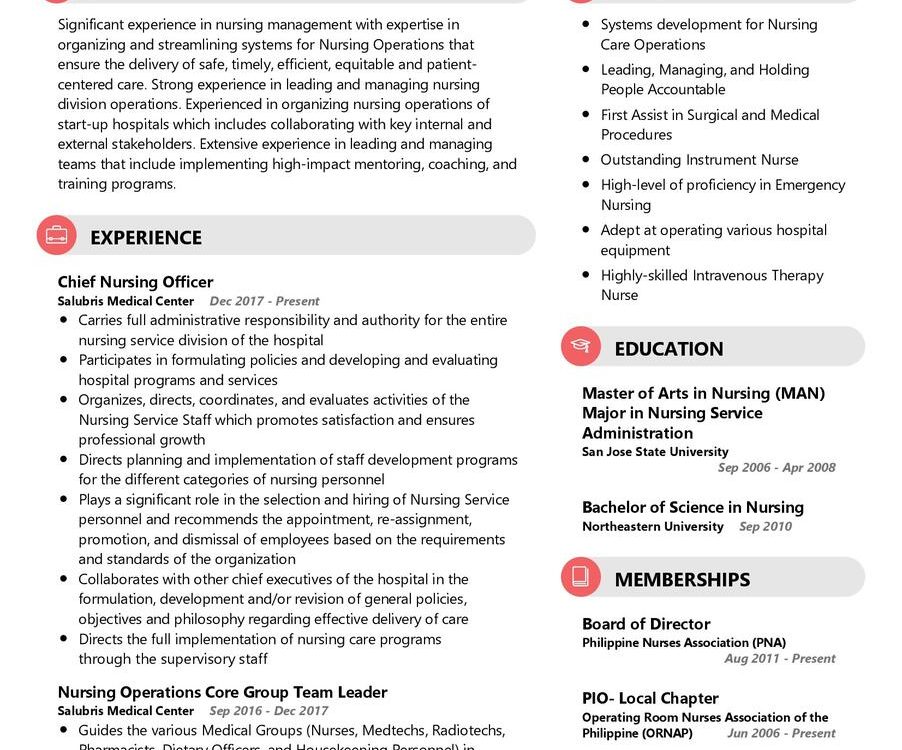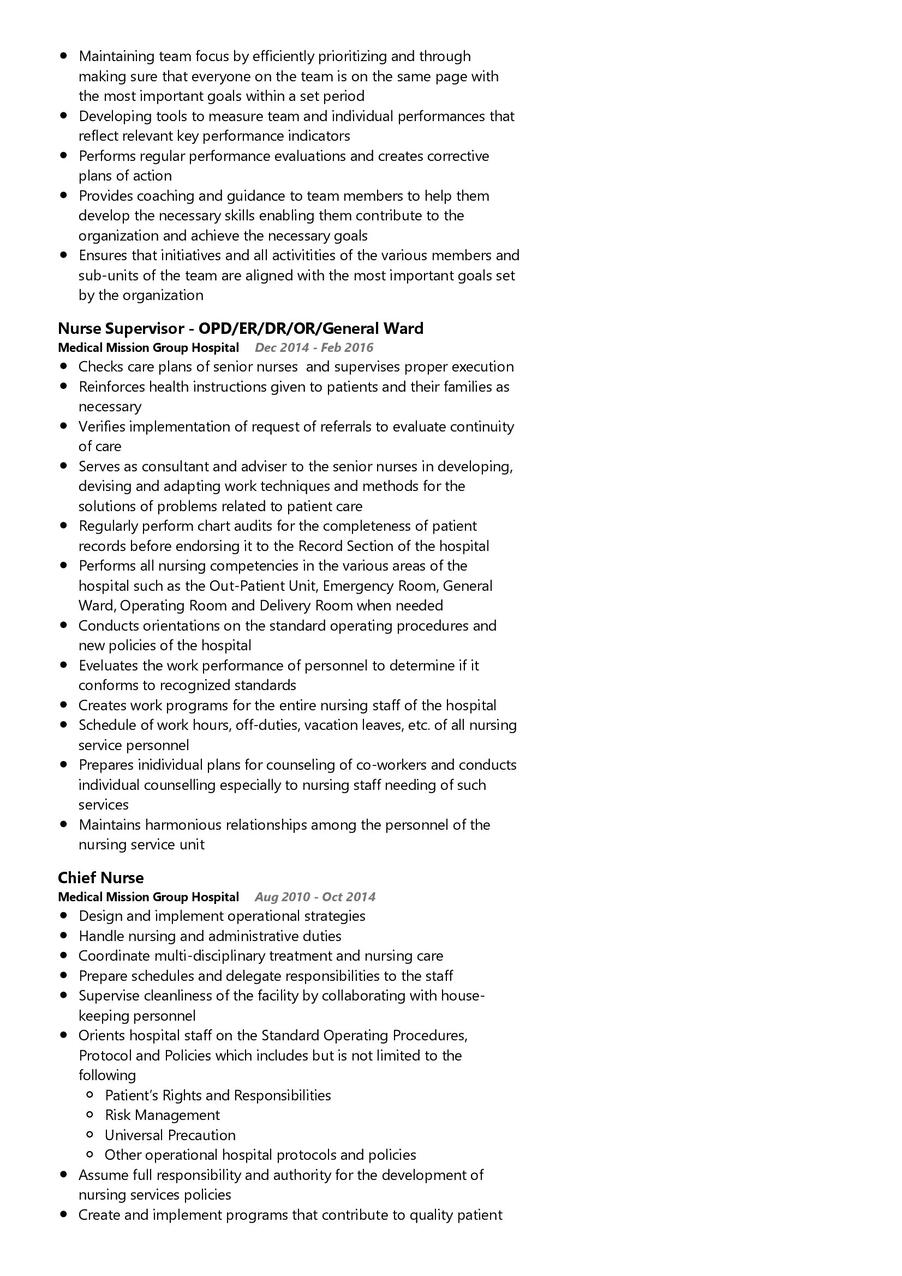What is the Role of a Registered Nurse?
Registered Nurses play a crucial role in the healthcare system, providing compassionate and skilled care to patients. As the backbone of healthcare teams, Registered Nurses are at the forefront of patient interactions and medical procedures. Let’s explore the multifaceted role of a Registered Nurse, a position that demands a blend of medical expertise and empathetic patient care.
A Registered Nurse is responsible for delivering patient care, collaborating with healthcare professionals, and ensuring the overall well-being of patients. They work in various healthcare settings, including hospitals, clinics, and long-term care facilities. The role involves assessing patient needs, developing care plans, administering medications, and educating patients and their families on health management.
What are the Registered Nurse Job Requirements?
Becoming a Registered Nurse requires meeting specific educational and professional requirements. Here’s a detailed look at the prerequisites for embracing the role of a Registered Nurse:
- A Bachelor’s or Associate degree in Nursing from an accredited institution.
- Successful completion of the National Council Licensure Examination for Registered Nurses (NCLEX-RN).
- Clinical experience gained through internships, practicums, or residency programs.
- Strong communication and interpersonal skills to effectively interact with patients, families, and healthcare teams.
- Proficiency in medical documentation and record-keeping.
- Adaptability and resilience to work in dynamic and challenging healthcare environments.
Continuing education and staying updated with the latest healthcare practices are essential for a successful career as a Registered Nurse.
What are the Responsibilities of a Registered Nurse?
The responsibilities of a Registered Nurse are diverse, encompassing both clinical and interpersonal aspects. Let’s delve into the core responsibilities that define this critical role:
- Conducting patient assessments to identify healthcare needs and developing individualized care plans.
- Administering medications and treatments prescribed by physicians, ensuring patient safety and well-being.
- Monitoring vital signs and responding promptly to changes in patient conditions.
- Collaborating with healthcare teams, including physicians, therapists, and support staff, to provide comprehensive patient care.
- Offering emotional support to patients and their families, fostering a caring and compassionate environment.
- Participating in health education initiatives, providing information on preventive care and post-treatment guidelines.
- Ensuring compliance with healthcare regulations and maintaining accurate medical records.
Each responsibility requires a combination of medical expertise, critical thinking, and empathy, making a Registered Nurse an integral part of the healthcare system.
Registered Nurse CV Writing Tips
Crafting a compelling CV is essential for a successful job application as a Registered Nurse. Here are some tips to help you create an impactful CV that highlights your skills and experiences:
- Emphasize your clinical experience, detailing the types of patients you have worked with and procedures you are proficient in.
- Highlight any specialized training or certifications, such as Advanced Cardiovascular Life Support (ACLS) or Pediatric Advanced Life Support (PALS).
- Showcase your communication skills by describing how you collaborate with healthcare teams and educate patients.
- Include measurable achievements, such as improvements in patient outcomes or successful implementation of healthcare initiatives.
- Personalize your CV for each job application, tailoring it to the specific requirements of the position.
Your CV is your professional narrative, showcasing your expertise, dedication, and commitment to patient care.
Registered Nurse CV Summary Examples
Your CV summary is the first impression employers will have of your qualifications and skills. Craft a powerful summary that encapsulates your experiences and value as a Registered Nurse:
- “Dedicated Registered Nurse with five years of experience in emergency care, skilled in rapid patient assessments and decisive interventions.”
- “Compassionate and detail-oriented Registered Nurse with a proven track record in pediatric nursing, ensuring the well-being of young patients.”
- “Experienced Registered Nurse with expertise in critical care, adept at managing complex medical cases and collaborating with multidisciplinary teams.”
Your CV summary sets the tone for the rest of your CV, providing a snapshot of your capabilities and strengths as a Registered Nurse.
Create a Strong Experience Section for Your Registered Nurse CV
The experience section of your CV is the core of your professional journey. Use this space to highlight your achievements and contributions in each role:
- “Led a team of nurses in a busy emergency department, reducing patient wait times by 15% through efficient triage and resource allocation.”
- “Implemented a patient education program in the pediatric ward, resulting in a 30% decrease in readmission rates.”
- “Managed critical care cases, collaborating with surgeons and specialists to achieve positive patient outcomes.”
Each experience listed should showcase your impact and contributions, demonstrating your ability to excel in diverse healthcare settings.
Sample Education Section for Your Registered Nurse CV
Your education is the foundation of your nursing career. Present your educational background in a clear and concise manner:
- Bachelor of Science in Nursing, XYZ University, a comprehensive program emphasizing clinical skills and evidence-based practice, 2016.
- Registered Nurse License, State Board of Nursing, demonstrating successful completion of licensing requirements, 2016.
- Advanced Cardiovascular Life Support (ACLS) Certification, showcasing additional training in critical care, 2018.
Your education section validates your qualifications and sets the stage for your expertise as a Registered Nurse.
Registered Nurse Skills for Your CV
Your skill set is a valuable asset in your role as a Registered Nurse. Highlight both your technical and interpersonal skills:
Technical Skills:
- Clinical expertise, with proficiency in various medical procedures and patient care techniques.
- Medical record documentation, ensuring accurate and thorough recording of patient information.
- Knowledge of healthcare regulations and compliance, maintaining a commitment to ethical and legal standards.
- Collaboration and teamwork, working seamlessly with healthcare professionals to provide holistic patient care.
- Adaptability and resilience, thriving in fast-paced and ever-changing healthcare environments.
Interpersonal Skills:
- Effective communication, fostering open and clear dialogue with patients, families, and colleagues.
- Empathy and compassion, demonstrating a caring and supportive approach to patient interactions.
- Problem-solving abilities, addressing challenges with a proactive and solutions-oriented mindset.
- Attention to detail, ensuring accuracy and precision in patient assessments and medical documentation.
- Time management, balancing multiple priorities to deliver efficient and effective patient care.
Your skills are the tools you use to provide exceptional patient care and contribute to the success of healthcare teams.
Most Common Mistakes to Avoid When Writing a Registered Nurse CV
Avoid common pitfalls when crafting your CV to increase your chances of securing a coveted position as a Registered Nurse. Steer clear of these mistakes:
- Using generic language, tailor your CV to the specific requirements of each job application.
- Focusing solely on job duties, highlight your achievements and contributions in each role.
- Underestimating the importance of a cover letter, use it to complement your CV and share additional insights into your qualifications.
- Overloading your CV with medical jargon, ensure it remains accessible to a diverse audience.
- Failing to proofread, a polished CV reflects your attention to detail and professionalism.
Avoiding these mistakes will help you present a CV that effectively communicates your unique qualifications and strengths as a Registered Nurse.
Key Takeaways for Your Registered Nurse CV
As you conclude this comprehensive guide, remember these key points to enhance your Registered Nurse CV:
- Highlight your clinical experience and specific achievements in patient care.
- Showcase your specialized training and certifications to stand out as a skilled professional.
- Emphasize your communication skills and ability to collaborate with healthcare teams.
- Include measurable outcomes and achievements in each role to quantify your impact.
Utilize resources like AI CV Builder, CV Design, CV Samples, CV Examples, CV Skills, CV Help, CV Synonyms, and Job Responsibilities to create a standout application and prepare for the Registered Nurse job interview.
Empower your career with a well-crafted CV that reflects your dedication to patient care and your commitment to excellence as a Registered Nurse. Best of luck!


